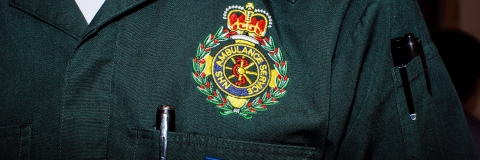
Sometimes accidents, near misses or injuries or incidents might happen while at university, here's what you need to do.
Getting medical help
Emergency support from the police and NHS medical services is free and available to anyone. However, in order to access ongoing treatment and medical support you need to be registered with a local NHS doctor.
We also have medical support on campus in the form of first aiders and publicly-accessible defibrillators.
First aid and defibrillators on campus
The University has over 30 accessible Automated External Defibrillators (AEDs) on campus around the University:
- Anglesea - main corridor
- Bateson Halls - Reception
- Buckingham Building - Entrance foyer by the lifts
- Burnaby Building - Outside Caretakers' office
- Burrell House - Ground Floor, outside laundry room
- Dennis Sciama - Entrance Foyer
- Eldon Building - Reception (West wing)
- Eldon Building - Outside the 3D workshops (South wing)
- Harry Law Hall - Entrance foyer
- Institute of Marine Sciences - Building A
- King Henry Building - Entrance foyer
- Langstone Campus - Sports Office
- Liongate Building: DSAA reception foyer
- Mercantile House - Floor 2 lift lobby
- Mercantile House - Floor 8 lift lobby
- Milldam LC LD - Reception
- Park building - Entrance foyer
- Petersfield Centre for Environmental Technology - Staff Office
- Portland - Atrium
- Port Royal Street - Main Office
- Ravelin Sports Centre - Reception
- Rees Halls - Reception
- Richmond Building - Reception
- Rosalind Franklin East - Reception
- St Andrew's Court - Unit 6, staircase entrance foyer
- St Michael's Building - Ground floor reception
- St Paul's Sports Centre - Reception
- Student Centre - Ground floor by lift
- University House, Ground floor foyer
- University Learning Centre - Opposite the DSAA Hub
- University Library - Ground floor foyer
- William Beatty Building - Reception*
- White Swan Building - Ground floor foyer
*I-Pad CU-SP1 (Safe for use on children under 8)
No training is required to use an AED - they are fully automated and give detailed instructions on what to do. An AED will not administer any shocks unless the patient's heart rhyme requires it.
There are first-aiders in all university buildings - look out for the green first aid signs. These list all the staff in the building that are qualified to give first aid treatment, and their extension numbers.
If you see a hazard or risk, report it to a member of staff or campus security on extension 3333 or +44 (0)23 9284 3333.
Getting help from the NHS
Health advice - NHS 111
Call 111 or visit 111.nhs.uk for health advice. It's a free service that allows you to speak to NHS staff who can give you health advice or help find which service is best for you.
Illnesses and minor injuries
If you're in Portsmouth
The Urgent Treatment Centre and Minor Injury Unit at St Mary's Hospital, east of the University campus can help with minor illnesses and injuries
They can offer treatment, advice and information for incidents like minor head and eye wounds, treating sprains, strains and breaks to arms, lower legs and feet.
If you're in London
The A&E and Urgent Care Centre at Whipps Cross Hospital can help with minor illnesses and injuries.
They can offer treatment, advice and information for incidents like minor head and eye wounds, treating sprains, strains and breaks to arms, lower legs and feet.
Calling an ambulance
If you're in Portsmouth
If you or someone else has a serious or life-threatening injury or condition on campus, call 999.
If you are on campus in Portsmouth when calling 999 please also call Campus Security who will be able to offer assistance and arrange access for the ambulance crew. Call the Security Lodge through extension 3333 or +44 (0)23 9284 3333. You'll be asked:
- The location, including the area or room in the building
- The phone number you're calling from
- What's happened?
The Security Lodge will dispatch caretakers and security to assist and arrange access for the ambulance crew.
If you're in London
If you or someone else has a serious or life-threatening injury or condition on campus, call 999. You'll be asked:
- The location, including the area or room in the building
- The phone number you're calling from
- What's happened?
Life threatening emergencies
If you're in Portsmouth
If you need urgent medical treatment for a life threatening emergency, the local hospital in Portsmouth is Queen Alexandra Hospital ("QA Hospital") in the north of the city.
The Emergency Department at QA Hospital treats those with life-threatening emergencies, such as loss of consciousness, persistent or severe chest pain, breathing difficulties or severe bleeding that cannot be stopped.
If you're in London
If you need urgent medical treatment for a life threatening emergency, the local hospital in Walthamstow is Whipps Cross Hospital.
The Emergency Department at Whipps Cross Hospital treats those with life-threatening emergencies, such as loss of consciousness, persistent or severe chest pain, breathing difficulties or severe bleeding that cannot be stopped.
How to report a crime or security incident
Please contact Campus Security if you're the victim of, or witness, a crime or security incident on campus.
Reporting sexual violence
For specialist and confidential medical support and advice after a sexual assault the best place to go is the Treetops Centre, Portsmouth’s Sexual Assault Referral Centre. Phone the 24/7 helpline on +44 (0)300 123 6616.
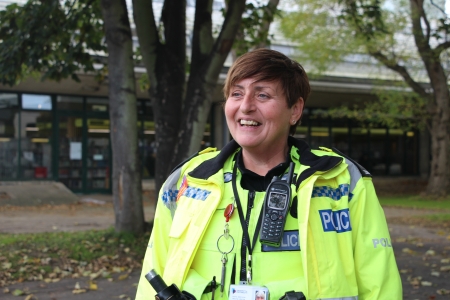
Our campus police officer
The University's dedicated liaison officer supports students with any police-related enquiries or issues you have on campus.
Police Constable (PC) Clare Parry is an experienced police officer, who has worked extensively with victims of crime and in the community.
You can meet with Clare by dropping into her weekly ‘surgeries’ at the University Library every Thursday lunchtime from 12.00pm - 1.00pm.
She can also be contacted by email at clare.parry@hampshire.pnn.police.uk or by phone on +44 (0)7392 289776.
Urgent support
If you need support urgently, all the important contacts are here.
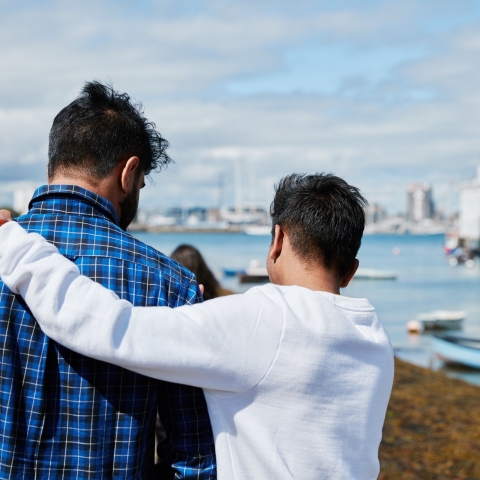
Staying safe at uni
Your safety matters to us – explore our guides to help your enjoy your time at university, and find contact details for police and other support.
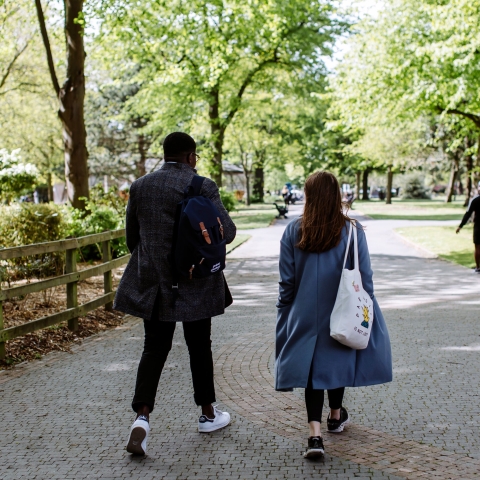
Safety on and around campus
Read our tips and advice on how to look after yourself and your friends, and find out how we're keeping our campus – and our city – a safe and welcoming place to live and study.
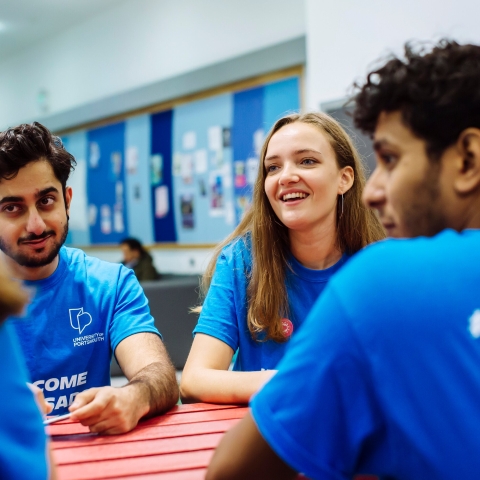
Enable University alerts
Turn on notifications for critical updates like closures, safety alerts, and urgent service disruptions.






